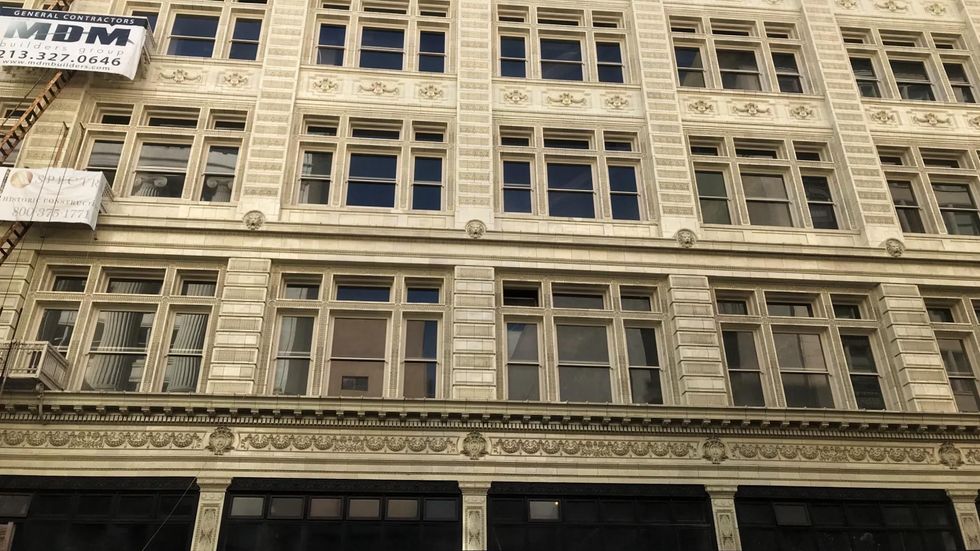Hoping to heat up its competition against rival Boring Co., Virgin Hyperloop relocated to new digs in the heart of Downtown Los Angeles, signing a four-year lease at the ROW DTLA in the Arts District.
Virgin Hyperloop, founded by Sir Richard Branson in 2014, had a head start on Musk, who formed The Boring Company in 2017 after outlining his own plans for hyperloop transport three years prior. Both firms are trying to create high-speed transportation tunnels that people in high-density metro areas could use daily, snapping their cars (or, if you’re Boring Co., just Teslas, of course) onto skates that shoot them through underground channels at hundreds of miles per hour.
Virgin Hyperloop moved just one mile away from its previous base in Downtown L.A., adjacent to the L.A. River. The new 49,862-square-foot office setup at ROW DTLA will see Virgin occupying the former American Apparel building, owned by the clothier until it filed for bankruptcy in 2016.
Currently the building is at the confluence of several distinct areas of Downtown Los Angeles; the city’s historical Fashion District, the ever-trendier Arts District packed with posh offices and eateries, and the infamous Skid Row, where much of L.A.’s unhoused population lives.
Virgin Hyperloop’s head of human resources Benjamin Savage said in a statement Monday that their “new headquarters in this vibrant area represents a new beginning for the company.” He added that “the space is designed to support our transition from technology to product development.”
Branson’s hyperloop promised passengers it could ferry them on high-speed underground rails from Los Angeles to San Francisco in under an hour by 2030. It plans to get the needed safety certifications by 2025. The company ran its first passenger test in November 2020 and is currently running tests at a facility in Las Vegas, where Musk’s firm also completed a commercial use tunnel for the city’s Convention Center this July.
Musk actually moved the Boring Co. out of Hawthorne in late April, opting for headquarters in Pflugerville, Texas, where the company plans to build a new 80,000 square-foot warehouse to support operations.
The Tesla CEO has been accused of using the Boring Co. as an elaborate ruse to disrupt plans for a high-speed rail in California (oh, and to sell flamethrowers). “Musk and the Kochs, both trying to halt a transition away from automobiles,” Paris Marx, a technology writer for Time Magazine, alleged in August 2019. It remains to be seen if Musk intends to make good on his promises to deliver high-speed hyperloop trails throughout the West Coast, or if Branson’s firm will beat the Boring Co. to the finish line.
Correction: This story has been updated to reflect Boring Co.‘s new headquarters in Pflugerville, Texas.
- Virgin Hyperloop Lays Off Half Its Staff, Refocuses on Cargo - dot.LA ›
- Virgin Hyperloop's Commute Concept Unveiled, Aims for 2030 - dot.LA ›
- A Look at What's Happening at Every Company Elon Musk Owns - dot.LA ›


 Built in 1907, the building once stood as Hamburger’s Department Store; it staffed about 1,200 employees and housed its own post office, public library and auditorium.Photo by Eric Zassenhaus
Built in 1907, the building once stood as Hamburger’s Department Store; it staffed about 1,200 employees and housed its own post office, public library and auditorium.Photo by Eric Zassenhaus